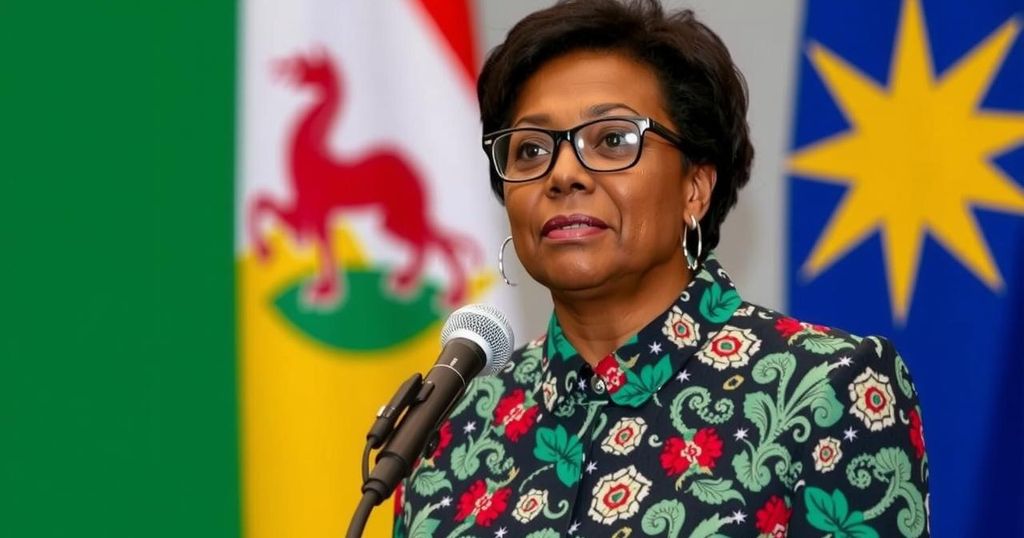In Namibia’s presidential election, early results show Vice President Netumbo Nandi-Ndaitwah leading amid technical difficulties that extended voting for three days. Opposition parties plan to challenge the election’s legality, citing issues like ballot shortages. Nandi-Ndaitwah has a chance to become the first female president, but public discontent with SWAPO due to economic struggles looms over the election’s outcome.
Namibia’s recent presidential election has been overshadowed by significant technical difficulties, which necessitated an extension of voting over a three-day period. The early results reveal Netumbo Nandi-Ndaitwah of the ruling SWAPO party leading, currently recognized for securing about 56% of the counted votes, which is approximately 220,000 out of 1.4 million. This election presented a historic opportunity for Nandi-Ndaitwah, potentially marking her as the first female president of Namibia, following her prominent role in the country’s independence movement.
However, the election has faced a severe backlash from opposition parties who have questioned the legality of the extended voting period, citing issues such as ballot paper shortages that hampered the election process. The Independent Patriots for Change party and other opposition groups are preparing to contest the election results in court, asserting that the integrity of the democratic process is at stake. Opposition leader McHenry Venaani emphasized the core issues surrounding democratic accountability, stating that governance should benefit all citizens rather than a select few.
SWAPO has governed Namibia since the nation gained independence from South Africa in 1990. Despite this historical legacy, the party has encountered mounting discontent among citizens regarding economic hardships and high youth unemployment rates, further complicated by allegations of corruption within the ruling party. The electoral body of Namibia has announced that there will be no rerun of the election despite calls from opposition parties for a repeat due to the reported irregularities.
Namibia, known for its relatively stable democratic history, recently conducted a presidential election that has been marred by significant problems, including logistical issues during voting. A major factor in the upcoming legal battles is the claim from opposition groups that the voting extension was unlawfully implemented, undermining public trust in the electoral framework. The ruling SWAPO party, despite its long-standing control of Namibia, faces intense scrutiny amidst increasing public disappointment over economic conditions and perceptions of government corruption. The contest presented an opportunity for Vice President Nandi-Ndaitwah to become the first female leader in the nation’s history, heightening the stakes of an already contentious electoral process.
The presidential election in Namibia has become a focal point of contention, marked by serious technical failures and subsequent challenges to its legitimacy. With the ruling SWAPO party in the lead, significant political and social implications lie ahead, underscoring the delicate balance between maintaining democratic processes and addressing the grievances of the populace. The outcome of the opposition’s anticipated court challenge will be crucial in shaping Namibia’s political landscape moving forward.
Original Source: abcnews.go.com






